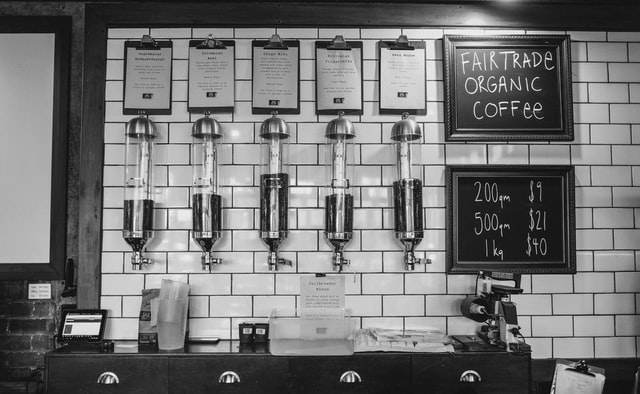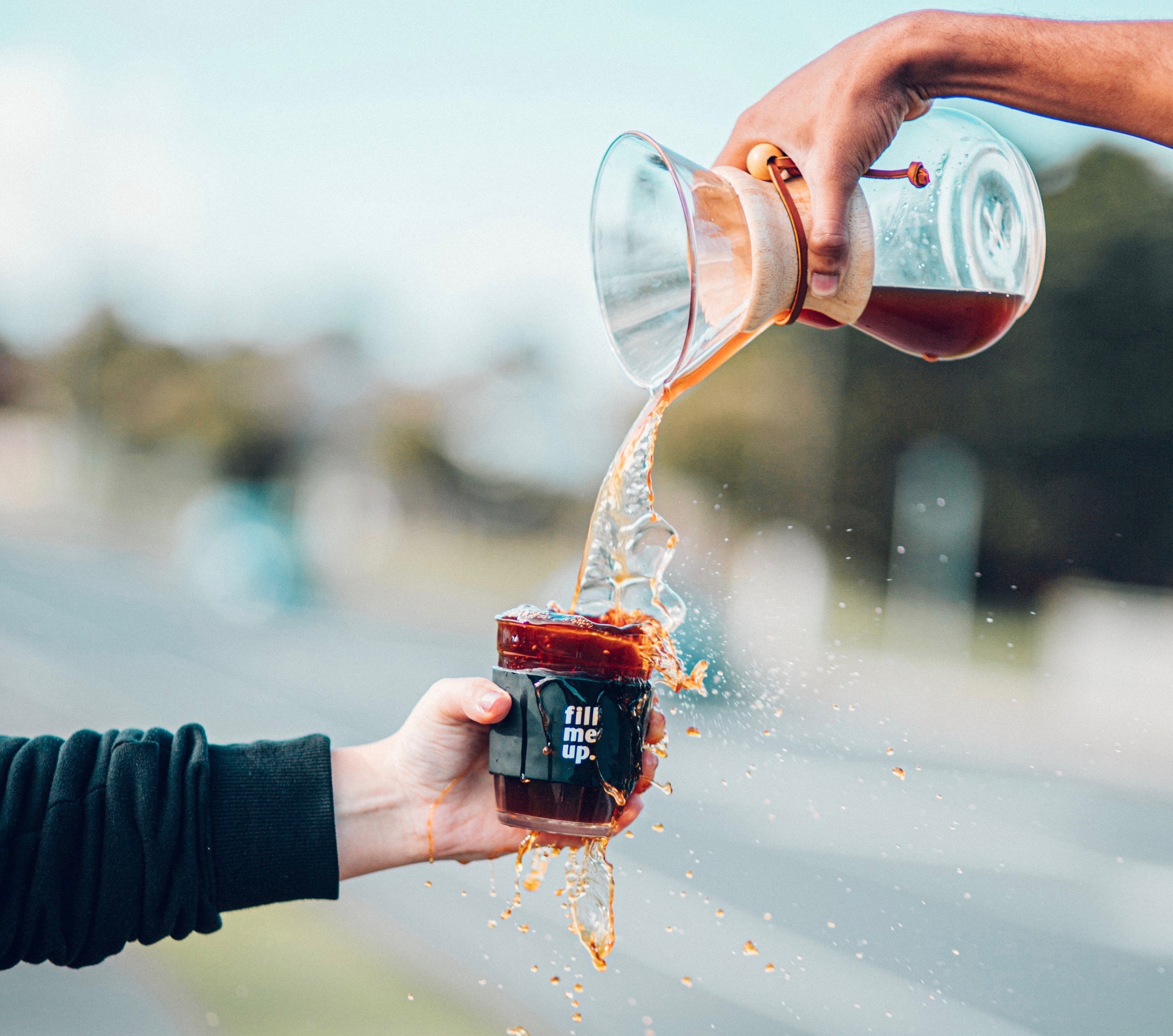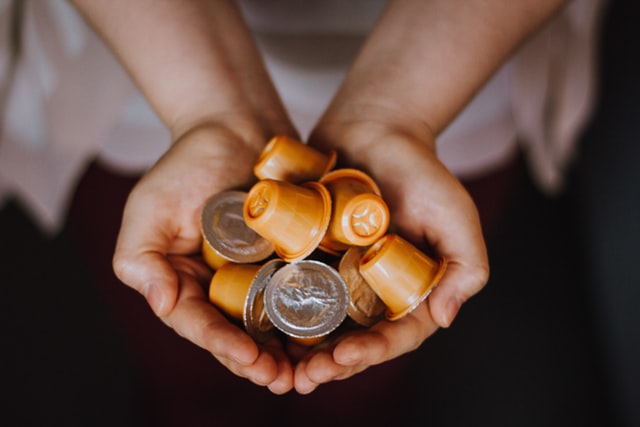Five ways to make your coffee habits more sustainable
Ah, coffee—for many of us, there’s no better way to start the day. Whether you get your fix from a campus café, boil the office kettle for a cup of instant or pop a pod into a capsule machine, the end result is (hopefully) the same: a delicious beverage and a renewed sense of energy. But have you ever wondered which method of getting your morning cuppa is the most sustainable?
1. Use a coffee press or moka pot

All you need when you use a good old-fashioned French press or moka pot is water, coffee grounds and a source of heat—either your kettle or a stovetop.
Better yet, a press or pot will last you years and can use less energy than their electric alternatives, making them an even more sustainable choice.
2. Choose fair trade

The term ‘fair trade’ gets bandied around a lot these days, but what does it actually mean? Fair trade is an ethical certification that requires businesses to pay farmers in developing countries a fair price for their crop, thus creating a more transparent and sustainable supply chain. It also encourages
the use of environmentally friendly agricultural practices.
According to Fairtrade Australia and New Zealand, coffee is a ‘highly volatile’ commodity, meaning that its price varies significantly from year to year—which presents a huge risk for the coffee farmers whose survival depends on their ability to produce decent yields. Climate change is a big part of this volatility—but by purchasing fair trade coffee, you’re helping invest in tackling its negative effects.
3. Get a reusable cup

Wrap your hands around a KeepCup or other reusable coffee cup, and you’ll enjoy all the delicious benefits of a takeaway coffee without the environmental cost.
According to Great Forest Australia, disposable coffee cups comprise around 20% of landfill waste. Although you might think your takeaway cup is recyclable because it’s mostly made of paper, that paper is often lined with a type of plastic called polyethylene that takes years to break down.
If your cup has no waxed or plastic coating, it’s recyclable; if the plastic lid has a Plastics Identification Code stamp (1–6), it’s also recyclable, but it’s best to remove the lid from the cup before recycling. The safest bet is to bring your own reusable cup, and many UQ cafes will give you a discount if you do. It’s a small step that can make a big difference—in fact, if we all did it, we’d divert 500 billion takeaway coffee cups from landfill every year! What are you waiting for?
4. Compost your coffee grounds

Don’t tip those coffee grounds straight down the sink—turn them into compost instead! As well as being a brilliant beverage, coffee is also an excellent fertiliser thanks to its high levels of nitrogen, phosphorus, potassium and other trace minerals that are beneficial to plant health. And considering that we produce an estimated six million tonnes of coffee ground waste worldwide each year, shouldn’t we think of something useful to do with it? So help keep your coffee out of landfill and use it on your garden or worm farm instead—chances are they’ll benefit from it just as much as you do.
5. Choose your coffee pods wisely

Coffee pods have become something of a phenomenon—according to the Australian Financial Review, tens of millions of these convenient capsules are produced each year, and Australian consumers are collectively downing more than three million a day— now that’s a caffeine fix! But just how environmentally friendly is it to use a disposable plastic and aluminium pod every time you get a coffee craving?
Despite their popularity, coffee pods have attracted plenty of negative press about the detrimental effects they’re having on the planet, since all those pods end up in one place: landfill. And once they get there, they can take between 150 and 500 years to break down.
But it’s not all bad news. Recycling company Terracycle now offers a free recycling program for some coffee pod brands.
Coffee pod consumers can also choose to purchase a Coffee Capsules Zero Waste box from the Terracycle website. Some companies are also now producing compostable coffee pods—those by the Ethical Coffee Company (ECC) allegedly break down in around 180 days, which is less time than it takes for citrus peel to degrade in landfill.
